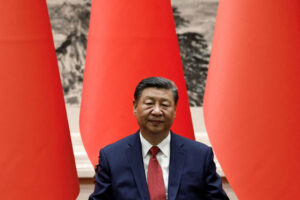Xi Jinping and Economic Concerns in China
The economy is in a recession, which means that Chinese President Xi Jinping has a long road ahead of him. As recent documents show, the country has many economic problems, such as the property crisis, the high rates of unemployment, and poor consumer spending. All these factors have contributed to a drop in the public’s morale.
Public Sentiment Towards Xi Jinping’s Policies
A significant number of citizens in China are worried about the course of the economy today. They consider the government’s efforts with Xi Jinping in helping them as a waste of time. In the recent Politburo session, problems with the “new challenges” of the economy were acknowledged; however, not much was done to comfort the population. Analysts note that, however, Xi Jinping prefers to speak about the state of affairs; this may not be the case for people who are eager for, even just a temporary, economic reprieve.
Economic Measures and Their Impact
In light of these difficulties, the government has suggested several responses. For one, they intend to change some housing policies and cut the interest rates on existing mortgages. Nevertheless, a vast number of people do not believe that these measures will achieve the desired effect. Instead, the public is hungry for more radical changes that do not only affect them directly but also increase consumer hopes.
Youth unemployment has been escalating out of proportion, with the statistics showing an 18.8% rate in August 2024. This trend has most young people worrying more about employment and overall economic conditions. Most of them think that the authorities, especially Xi Jinping, have not cared for them enough.
The Role of National Security in Economic Policy
Coupled with this is the fact that Xi Jinping’s obsession with national security undermines efforts to revive the economy. His government emphasizes a more state-led approach at the expense of markets, which some argue curtails innovation as well as entrepreneurship. Such a policy has caused internal stifling of dissenting views within the Communist Party on issues of economic orientation, making many people regard it as a vain attempt to change any policy.
Impact of Malaysian PM’s Trip on Pakistan-Malaysia Ties
Conclusion: A Call for Change
As the situation continues to evolve for Xi Jinping, so does the expectation of the general populace towards a change. The citizenry desires policies that would address their issues and support growth in the economy. However, given that if Xi Jinping could find a balance between economic and political control, understanding and confidence from the Chinese people would be achieved, and the country would be on the way to recovering.
In conclusion, it is clear that Xi Jinping does recognize that China needs to address the economic challenges it is facing, but this does not translate to citizens having faith in the current government to find solutions to these problems. It is vital to strike a balance between political repression and economic liberalization if a better financial system is to be achieved in China.
To get more information about this topic click on this link
Get the Most Important Updates about the World!
